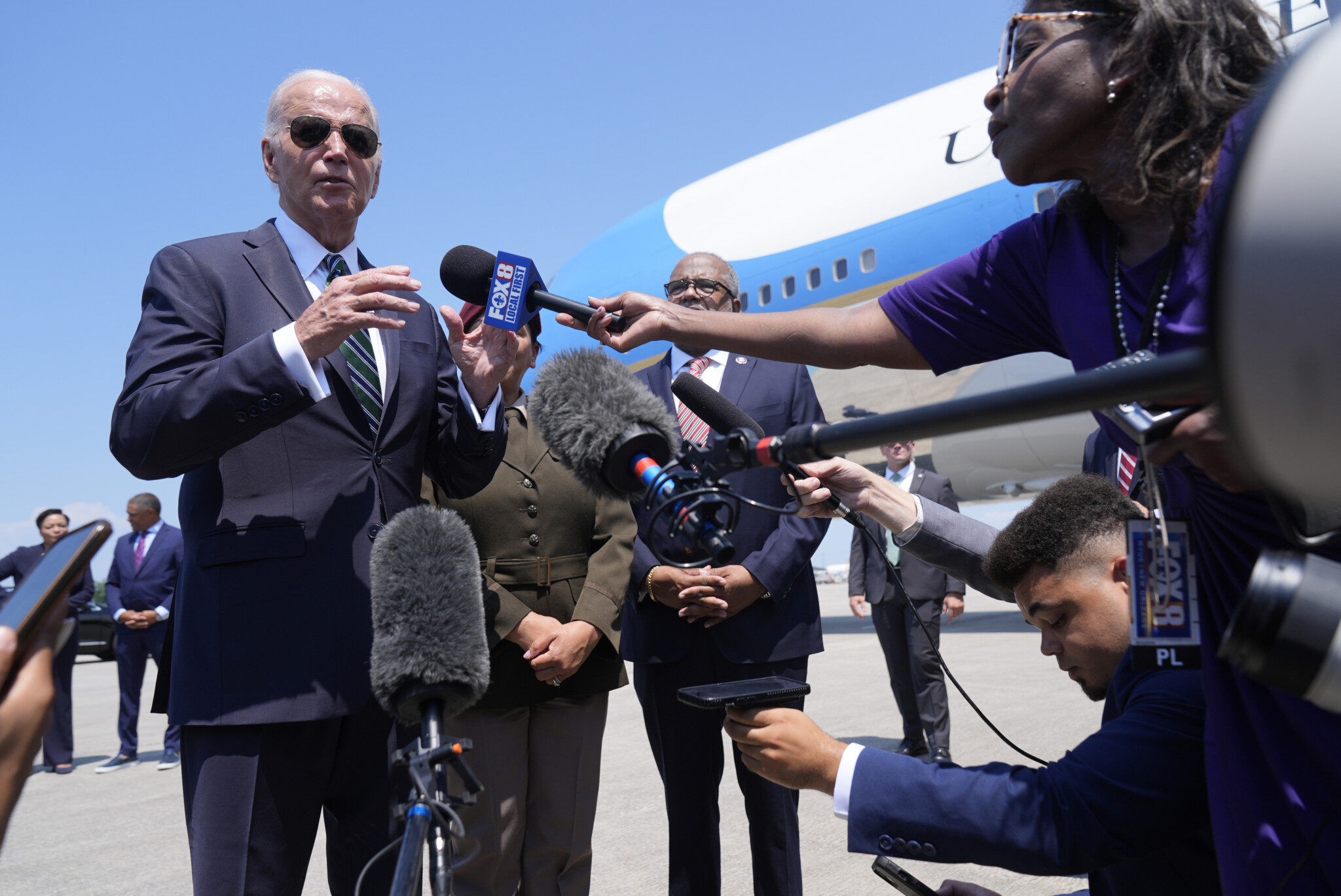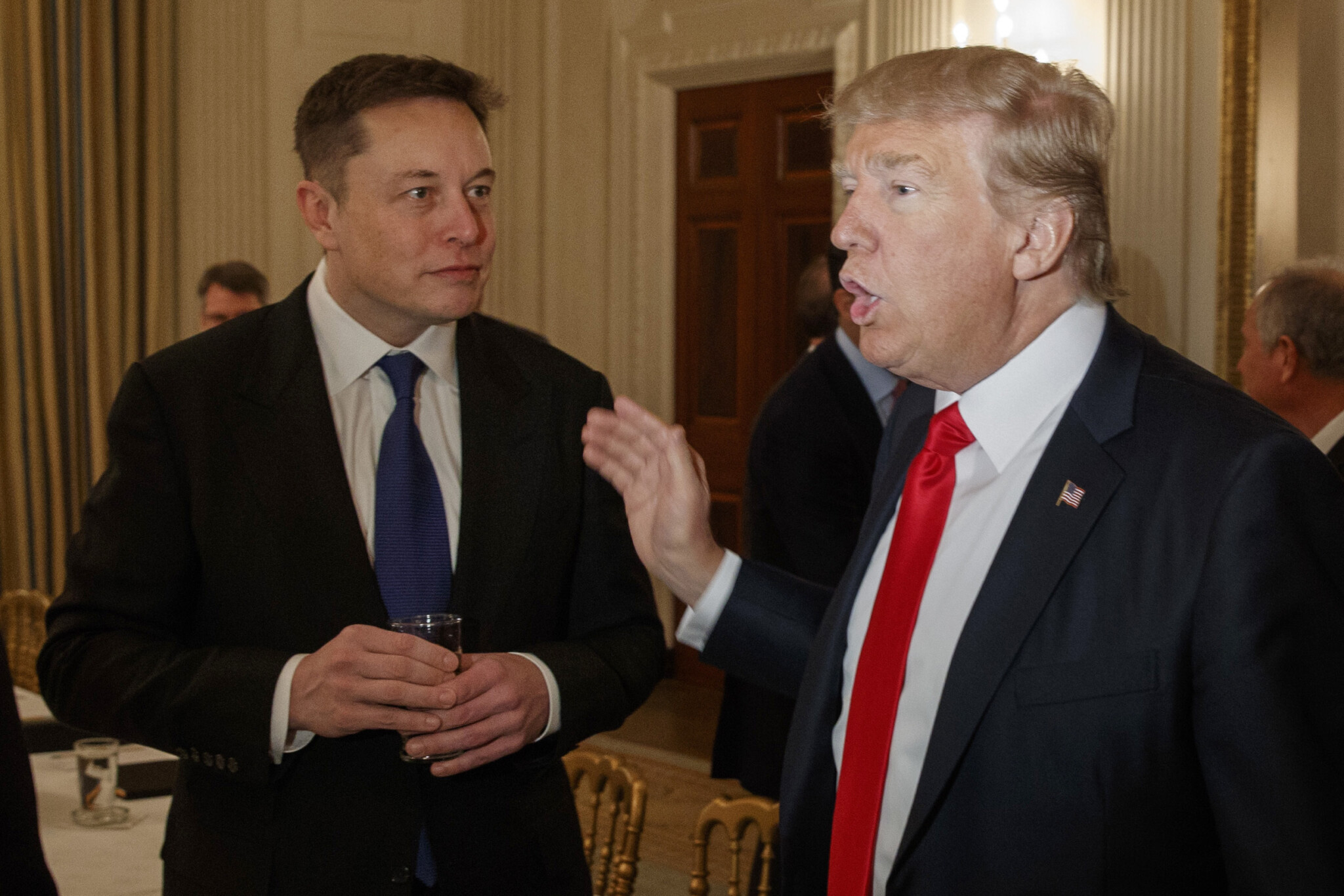On Monday night, Republican presidential nominee Donald Trump joined billionaire Elon Musk for an exclusive two-hour interview on X.
— Donald J. Trump (@realDonaldTrump) August 13, 2024
The discussion covered a wide range of topics, including the assassination attempt on Trump, the economy, immigration, energy policy, and international relations as well as the Democrats switching out President Joe Biden as presidential candidate for Vice-President Kamala Harris.
The interview, which saw arguably the world’s most famous man in conversation with the world’s richest man on a social media platform he owns, garnered substantial attention, according to X’s internal numbers.
“Between 7:47 PM and 10:47 PM ET, President Donald Trump’s Space post received 73 million views,” the X platform claimed Tuesday morning. “During the same period, there were 4 million posts about Elon Musk and President Trump’s conversation on X, generating a total of 998 million views.”
Combined views of the conversation with @realDonaldTrump and subsequent discussion by other accounts now ~1 billion https://t.co/s8x8QmdmnY
— Elon Musk (@elonmusk) August 13, 2024
The interview with Musk is part of a broader trend of Trump (and other politicians) engaging with non-traditional media and giving legacy outlets the cold shoulder.
Earlier this month, Trump was interviewed by online streamer Adin Ross (2.4 million YouTube views). In June, Trump spoke with YouTuber Logan Paul (6.4 million views). Trump and his running mate, JD Vance, were also both interviewed by YouTubers the Nelk Boys (8.8 million views). The interviews generally took the casual tone of a personal conversation between friends. They may have lacked traditional journalistic rigour, but they were entertaining and interesting to watch.
Biden has also appeared on multiple podcasts, including the Jay Shetty Podcast and Conan O’Brien Needs a Friend.
This trend of politicians engaging with alternative means of communication isn’t limited to the U.S.
In Canada, Conservative leader Pierre Poilievre has appeared on several independent podcasts to discuss topics including cryptocurrency, with hookah in hand. He’s also done interviews with YouTuber (and frequent Hub podcast guest) J.J. McCullough (465,000 views on YouTube) and with Canadian psychologist and author Jordan Peterson (3.5 million views on YouTube).
This year, Prime Minister Justin Trudeau has spent hours appearing on friendly podcasts like Freakonomics and Today, Explained.
Politicians have also been opting to use social media for major political announcements, trading the press conference podium for the social media post.
Last month, Biden chose X, a platform regularly denounced by progressives, to announce the end of his re-election bid. Florida Governor Ron DeSantis launched his Republican presidential primary campaign on the same platform. Hillary Clinton also announced her 2016 presidential campaign on social media.
Here at home, Poilievre launched his 2022 Conservative leadership campaign with a video posted to social media.
While X can be a vitriolic mess, it still seems to be the place to break news.

President Joe Biden talks with reporters Tuesday, Aug. 13, 2024, at Louis Armstrong International Airport in New Orleans. Mark Schiefelbein/Ap Photo.
What does this all mean?
In an interview with The Hub, Peter Menzies, a senior fellow at The Macdonald-Laurier Institute, former newspaper executive, and past vice-chair of the CRTC, said politicians no longer need legacy media outlets, including newspapers or radio stations, to tell their stories.
“Everybody can tell their stories directly. So, in essence, everybody is their own media,” he said. “The internet changed everything, and it’s changed it in politics.”
Katherine Haenschen, an assistant professor of political science and communication studies at Northeastern University, said in an article that interviews with alternative means of communication represent a cornerstone of campaign communication strategy: “Meet the voters where they’re at,” she explained.
Today, many of those voters are no longer tuned into legacy media.
Many Americans—and Canadians—are tuning out traditional news sources in favour of podcasts, influencer live streams, and social media. Alternative news outlets like the Daily Wire and The Free Press have gained traction in the United States—same for former legacy media journalists turned independent like Megyn Kelly. Listeners and readers, often on the Right, are thirsty for stories and perspectives they won’t find on traditional TV or radio.
According to the Reuters Institute for the Study of Journalism Digital News Report 2024, 72 percent of Americans get their news online, with 48 percent receiving their news specifically from social media. The report also found a drop in TV and print news in the last ten years.
A Pew Research poll found that among those aged 18-29, 83 percent prefer digital news, with social media being the most popular source.
The Reuters Institute also showed that podcast listenership has surged, with 44 percent of Americans saying they tuned into a podcast in the last month.
In 2013, just 12 percent of Americans turned into a podcast in the month prior to being polled by Pew Research.
U.S. satellite and cable TV subscriptions are down by 20 million since 2014—a trend expected to continue. Weekday newspaper subscriptions have also fallen by 32 percent in the last five years.

This July 15, 2020, file photo shows copies of The New York Times newspaper displayed for sale at a news stand in Hong Kong. Kin Cheung/AP Photo.
Similar trends are again being observed in Canada. 72 percent of Canadians get their news from the internet, and 46 percent directly from social media. TV and print news consumption has also dropped. Meanwhile, 41 percent of Canadians listened to a podcast in the last month.
Many Americans, especially those in Generation Z, no longer pay attention to legacy media outlets, turning instead to alternative sources for information. This comes amidst allegations of bias and political agendas in legacy media, particularly in its coverage of politics.
A Harvard study found that 80 percent of Trump’s media coverage during his first 100 days in office was negative. By contrast, Pew Research concluded that 32 percent of the coverage of Biden’s first 100 days was negative.
According to a 2022 Syracuse University study, journalists who described themselves as Republicans dropped from 18 percent in 2002, to 7.1 percent in 2013, to a mere 3.4 percent in 2022. That same year, 26 percent of Americans called themselves Republicans.
Additionally, there were criticisms of the legacy media’s “Russian collusion” narrative, its alleged cover-up of Biden’s declining health, and what some perceive as favourability towards Kamala Harris and her running mate Tim Walz.
The Reuters Institute report found that only 32 percent of Americans trust the media. A Gallup poll found trust is especially low among those aged 18-24, with just five percent expressing a “great deal” of trust, while 37 percent said they had no trust at all in the media.
A poll by the American Press Institute and The Associated Press-NORC Center for Public Affairs Research found that 53 percent of Americans are extremely or very concerned that news organizations will report inaccuracies or misinformation during the election.
Similar sentiments are again seen in Canada, with Canadian legacy media outlets, also being accused of being biased, especially since many of them, including the CBC, receive government funding. The Reuters report showed just 39 percent of Canadians say they trust the media.
Criticisms of the Trump-Musk interview
The Trump-Musk interview was not without its critics, with many of them squawking from legacy media perches.
USA Today called the interview an “unmitigated disaster,” CNN said it was like watching “Grumpy Old Men,” MSNBC chalked it up as a “failed” interview, NPR claimed it was “light on news,” the New York Times called it a “two-hour ramble,” the Washington Post said Musk asked “softballs,” and The Verge called it a “tech disaster.”
Collection of the negative headlines from the Trump x Elon spaces pic.twitter.com/0lyQdygytt
— Autism Capital 🧩 (@AutismCapital) August 13, 2024
Legacy media said Musk allowed Trump to lie, therefore making him an “enabler.”
Some claimed that Musk, as a billionaire businessman, lacks the training, experience, and ethical standards of a professional journalist—a concern that can be extended to YouTubers and streamers.
Questions were raised about Musk’s support for Trump, including donations to his campaign. There have also been concerns about streamers giving Trump gifts—Adin Ross gifted him a Rolex Watch and a Tesla Cybertruck, and the Nelk Boys also gave him a Rolex.
I asked Menzies his thoughts on the criticism levelled against the Trump-Musk interview and other alternative media.
“It’s almost like there’s a sense of anger [in legacy media] that they’ve been displaced,” he said. “[They think] Elon Musk isn’t a member of the priesthood, therefore he shouldn’t be doing this, which is frankly just silly.”
On the nature of professional relationships between politicians and interviewers, Menzies noted the relationship between some legacy media outlets like CNN and Trump is far from professional. “I don’t think anybody has an expectation that this relationship is what you would call a normal professional relationship between media and a politician,” he said.
Proof of this, late-night host Stephen Colbert was met with audience belly laughs when he claimed that CNN was fair and balanced in an interview with a CNN journalist this week.
Not even NYC lefties buy CNN as objective. @colbertlateshow audience laughed when Stephen #Colbert asserted: “I know you guys are objective over there, that you just report the news as it is” @KaitlanCollins: “That supposed to be a laugh line?” Colbert: “It wasn’t supposed to be” pic.twitter.com/IfqNEDPrfa
— Brent Baker 🇺🇦 🇮🇱 (@BrentHBaker) August 13, 2024
As for the issue of Musk being a Trump supporter and donor, or streamers gifting Trump Rolex watches, Menzies gave an answer that may come as a surprise to many journalists. He said the public does not really care about these things, and cautioned legacy media against making a big deal out of it.
“It’s an inside baseball discussion with that sort of stuff,” he said. “I understand why the media cares, but I don’t understand why the public should care. Getting all upset about that just helps illustrate the disconnect between the media and the public they’re supposed to be serving.”
It’s also worth noting that while Trump engages with alternative media, he hasn’t entirely shunned legacy media. He recently sat down with Fox News and appeared on stage at the National Association Of Black Journalists Convention for a Q&A. He also previously did a town hall with CNN and has held multiple press conferences.
In contrast, Harris has not held a single interview since she was crowned by the party’s elite nearly 30 days ago. This month, she can be found on a fawning cover of Time magazine, but her communications team declined an interview with its journalists.
Going forward
The media landscape has changed, and it appears to be a lasting shift.
A report by the Reuters Institute last year noted, “There are no reasonable grounds for expecting that those born in the 2000s will suddenly come to prefer old-fashioned websites, let alone broadcast and print, simply because they grow older.” The report added, “The internet makes possible much more content and reaches all kinds of people.”
This shift is further emphasized by the success of independent media outlets and journalists launching their own news shows.
Menzies says if legacy media wants to maintain its relevance, at a time where politicians no longer need them to get their message out, they need to change.
“They need to figure out what the value proposition is, and that is for politicians,” he said. “It used to be the other way around, where the politician was trying to get on your [legacy media] show…Now you’ve got a situation where [legacy media] are begging the politicians to come on their show.”
“What the media need to appreciate from the political point of view is that you need to convince them…what’s the upside for a politician to come on your show? Do you have that big an audience? Will they be treated fairly?” Menzies said. “You have to create a value proposition. And I think the one that has existed for a long time doesn’t exist anymore. So they better come up with a new one.”
Add to this the fact that appearing on a mainstream outlet introduces risk into the elected official’s decision to appear, regardless of their political leanings. They would much rather sit in a podcast studio, where they can answer soft balls from their fans about their favourite midnight snack, than be in a TV studio where their policy on health care may be challenged or their mistruths will be called out.
If legacy media wishes to avoid becoming completely irrelevant, it would be wise to stop complaining about the rise in alternative media, and instead work towards a new value proposition.
There can still be a place for conventional media to give politicians an opportunity to defend their ideas and policies, but in a fair rather than nasty, non-biased environment. Politicians can stand to benefit from a more challenging but fair interview. Proof? 2024 Republican primary candidate Vivek Ramaswamy made a name for himself for his impressive ability to appear on any program and defend what he stood for. Whether you like him or not, this showcased candidate strength.
The landscape has changed and legacy media needs to change too. They are no longer the gatekeeper or agenda-setter. Americans—and Canadians—are turning to alternative sources of information and politicians no longer need legacy media to get their message out.
The empire has fallen. Like it or not, this is the new normal.








